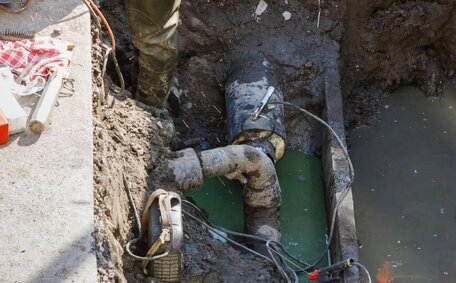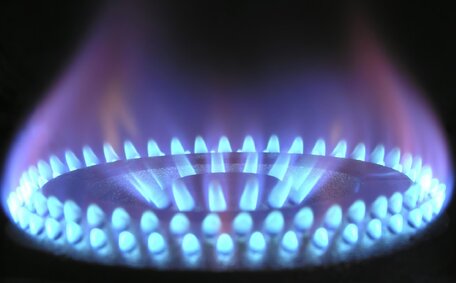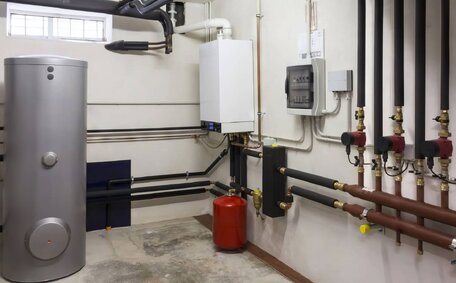
Sump Pump Failure Solutions
Sump pumps fail due to power outages, clogs, frozen pipes, and more. Prevent water damage by understanding causes and contacting plumbers for solutions to extend pump life.
Read MoreGas fitting refers to the installation, maintenance and repair of gas lines, appliances, fittings and flues. For businesses, having qualified gas fitters perform this specialised plumbing work is crucial for safety and compliance.
Gas fitters are licenced professionals who have undergone training to work with natural gas, LPG systems and other gas appliances both in residential and commercial settings. Their services typically involve:
Unlike general plumbing work, only authorised and licenced gas fitters with the proper qualifications can carry out gasfitting services by law. This aims to prevent unsafe work that could lead to fire, explosion or carbon monoxide poisoning risks.
Businesses should hire professional gas fitting services for installing any new gas appliances or doing repairs, maintenance and certification. Trying DIY gasfitting without proper training and licencing can jeopardise the safety of your staff and customers.
When hiring a gas fitter, always check they are properly licenced for the type of gas work needed. Ask to see their gas work licence and verify its validity. This helps ensure you comply with regulations and avoid unqualified handymen.
In Australia, it is mandatory for any individual carrying out gasfitting work to hold a current gas work licence that is valid for the type of gas work being performed.
There are two main categories of gas work licences issued by regulators in each state and territory:
To obtain a full gasfitter licence, individuals must complete an accredited vocational qualification like Certificate III in Gas Fitting along with specified units of competency. They must also accrue supervised work experience before applying to their state or territory gas regulator.
Holding a current gas work licence from the relevant regulator ensures gas fitters have undergone proper accredited training and assessment to safely perform gasfitting services in compliance with AS/NZS 5601 Gas Installations standards.
Businesses hiring gas fitters should always verify the licence is valid for their jurisdiction and authorises the type of gas work required. This ensures gasfitting is carried out professionally, safely and legally.
There are several situations when businesses should hire a professional licenced gas fitter rather than attempting DIY gas work:
Attempting dangerous gasfitting work without proper training and licencing can lead to gas leaks, fires, explosions and carbon monoxide poisoning.
Hiring a qualified professional gas fitter helps avoid these risks and ensures work complies with Australian standards. They have the expertise to identify issues and do repairs safely.
Businesses should view gasfitting services as an investment in the safety of their staff and customers. The small upfront cost far outweighs the potential dangers of unqualified DIY gas work.
When hiring a gas fitter, follow these tips to ensure you choose a qualified professional:
Doing due diligence helps businesses hire competent, qualified gas fitters to undertake work safely. Never cut corners by using unlicensed handymen for gasfitting services.
There are several gas appliances commonly used in residential and commercial settings that require installation and maintenance by qualified professionals:
installing these appliances, periodic servicing by gas professionals also helps maintain safety. They can detect any faults or issues early before they become dangerous.
With complex gas systems, appliances and flues, it’s not worth the risks for businesses to use unqualified handymen. Hiring licenced gas fitters is the safe and legal option.
The installation and maintenance of gas lines should only ever be handled by qualified, licenced gas fitters. Mishandling gas lines can lead to very dangerous outcomes like gas leaks, fires and explosions.
When installing new gas lines, gas fitters will determine the best routing for minimal interference and maximum safety. The right materials must be used - copper, corrugated stainless steel or polyethylene pipes are common. Proper protective coatings and insulation will be applied.
Gas fitters use techniques like pressure testing and leak detection to check for any faults in the system. The entire gas line system is purged of air and pressurised according to legal requirements.
All connections are tightened securely and joints are bonded correctly. Vents and valves are positioned properly.
For maintenance, annual inspections of gas lines are recommended. A gas fitter will inspect all visible gas plumbing and use gas detectors to check for leaks. They ensure protective coatings remain intact, appliances are extracting gas properly and any issues are addressed before they become dangerous.
Over time, gas lines may develop pinhole leaks or cracks due to damage, wear and tear or soil movement. A professional gas fitter has the expertise to find the exact leak location and repair it promptly and properly for ongoing safety.
Neglecting gas line maintenance heightens the risks of gas leaks or appliance malfunctions. By employing competent gas fitters for installation and upkeep, businesses and homes can prevent hazardous problems and operate efficient, safe gas plumbing systems.
Complying with gas safety regulations is crucial for any business using gas appliances or systems. This helps mitigate the risks of fire, explosion, carbon monoxide poisoning and other dangerous outcomes.
In Australia, laws require all gasfitting work to be carried out by qualified, licenced professionals. Businesses are legally obliged to use licenced gas fitters for installing, maintaining, repairing or altering any gas appliances or gas lines.
After completing any gasfitting work, the gas fitter must issue a gas compliance certificate. This documents that the gas installation complies with all required standards and regulations. It also provides proof that the work was done by a licenced professional.
Gas compliance certificates offer protection for businesses in the event of an incident linked to a gas installation. It shows due diligence was undertaken by using proper qualified tradespeople.
Certificates are also required when selling or leasing properties so new owners or tenants know the gas systems meet safety standards. Landlords may need to provide gas compliance records to building insurers too.
When hiring gas fitters, check they are familiar with compliance certificate requirements. Ensure they will provide the proper certificates after finishing work.
Staying up to date with gas safety laws and only using licenced professionals helps businesses demonstrate duty of care. It also prevents the risks and liability issues that can arise from non-compliant, unsafe gas installations.
Regular maintenance of gas appliances by qualified professionals is crucial for ongoing safety and efficiency.
Cronulla Plumbing recommends having all your gas appliances inspected and serviced at least once a year by a licenced gas fitter. This helps detect any issues before they escalate into dangerous problems.
During servicing, the gas fitter will check for leaks, inspect hoses and fittings, clean burners and pilots, adjust airflow and pressure, test electronic ignition systems, and confirm proper ventilation. They will also service thermostats, valves, exhaust flues, blowers and other components.
Some key maintenance procedures for common gas appliances include:
Well-maintained gas appliances are less likely to develop issues like harmful gas leaks. Regular servicing improves efficiency as well. Best of all, professional maintenance ensures your gas systems operate safely.
At Cronulla Plumbing, our fully licenced gas fitters have the expertise to thoroughly inspect and service all makes and models of residential and commercial gas appliances. Contact us today to book your annual gas appliance maintenance!
Sump pumps fail due to power outages, clogs, frozen pipes, and more. Prevent water damage by understanding causes and contacting plumbers for solutions to extend pump life.
Read MoreIf your monthly gas bill rises suddenly for no clear reason, the cause could be a gas leak from old pipes or appliances. Contact your provider to investigate.
Read MoreScale buildup reduces the efficiency of hot water systems over time. Regular descaling helps remove this. Flush your system with vinegar or a descaling solution.
Read MoreCronulla, 2230 NSW
We will call back as soon as possible.




